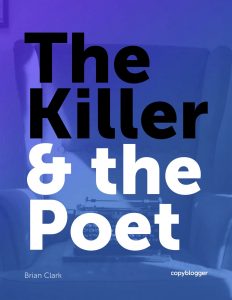“High quality” is a measure of whether or not your content helps your audience in ways they can’t find anywhere else.
Simple … and not-so simple.
We can all quickly spot junk content, but it takes a lot more effort to match the description of high-quality content I mentioned above.
That’s because the type of creative content that actually produces results for your business is multidimensional and typically doesn’t arise from linear thinking.
Let’s look at three ways a regular writing practice helps you work in that multidimensional space that honors both your prospects’ and your business’s needs.
1. You live like an artist
This one is my Writer-side’s favorite.
Writing practice isn’t confined to time you spend in front of your computer or journal.
When you’re working on a project, different aspects of your life can be sources of inspiration. And you often need to be out living your life to make remarkable connections in your content.
- Notice what other consumers say.
- Observe how other businesses market themselves.
- Invent persuasive analogies and metaphors.
When you learn to live like an artist, once it’s time to write, you already know what you want to say.
Then it’s your job to put together a cohesive presentation.
2. You value effective communication
This one is my Editor-side’s favorite.
A large part of an editor’s work involves spotting text that is unclear. Of course, those phrases or sentences made sense to the writer, but that doesn’t always mean they make sense to a reader.
Writing practice helps writers translate the vague thoughts in their minds into a crisp draft that someone else will effortlessly understand.
My first drafts are a lot more comprehensible than they were 10 years ago. I still improve them with editing and proofreading, but starting out with much higher-quality writing enables me to finish my final draft faster.
3. You develop empathy
And this one is my Marketer-side’s favorite.
We all know that “living like an artist” can be self-indulgent, but your writing practice can also temper that side-effect.
When you write, you naturally reflect on yourself, others, dilemmas, current events, etc. You explore different points of view as you review the ideas you’re contemplating
Through this process, you’ll develop empathy for where other people are on their journeys, which is what you need to do to focus on the best ways to serve your audience.
If you want to craft words professionally, there’s no substitute for the writing practice that gives you the experience you need.
What multidimensional content looks like today

A lot has changed since the beginning of 2020, and digital marketing will continue to evolve at a fast pace. How does this affect writers and content creators?
You’ll find out in Brian Clark’s new
30-page report: The Killer and the Poet.
Here’s just some of what’s included:
- The importance of being a hybrid marketer
- What AI will mean for content creators
- The “killer” skill every creative writer needs
- How to augment your creativity with technology
- The people AI will replace (and those it won’t)
- The indispensable process for lifelong success
- Why being a content creator alone is not enough
- The 3 crucial disciplines for protecting your value
- Action items for thriving in the coming decade
I’ve taken notes on the PDF report several times, so I can assure you it’s an easy-read. 
Download The Killer and the Poet
This free report covers the future of digital marketing for writers and other content creators in the face of rapid technological change.

Reader Comments (10)
Great post…again! It was very interesting to see how you brought the writer, editor, and marketer into play. It is so true. I see it in my own life as well. Each area builds off the others in bringing your best to the market. I like that! Thanks for sharing!
Cool, thanks Jane!
I have written 1000 words or more daily either online or offline for many years. Thousands of guest posts, thousands of blog posts, and over 100,000 blog comments later, writing like the dickens formed the cornerstone of my current life, with me going from being an unemployed security guard to island hopping pro blogger. That should be a decent endorsement LOL.
Thanks for sharing
Ryan
Love the dedication (and results!), Ryan.
I’d say this post pretty much covers it. This is how writing works, or at least how it’s supposed to work. I can’t help but think that people who believe writing is hard are mostly making it hard on themselves. And don’t worry, my little hand can go up in the air on that one too. Practice is also how we learn not to freak out about writing and even to enjoy it.
Excellent points, Michael!
In other words, live like an artist to catch more ideas, develop empathy to match those ideas to a reader’s needs, and build your editing muscles so the bridge between the two stays clear.
I love that succinct summary — well put, Ken!
Another great piece, Stephanie. To improve writing for marketing, it helps to get the artist in you to embrace formulas and templates. For a long time, the artist in me threw my beret across the coffee shop and stamped out my clove cigarettes at the idea of using either. But once you sell out (er… get smart) and adopt a few (Problem-Agitation-Solution is a fave), you can focus your creativity on fleshing out said formula. A huge timesaver, which allows you to work more effectively — and still have time and energy for the work that feeds the artist. And maybe even retrieve a beret or two….
That’s an awesome story, Greg!
Being an artist can be an uphill struggle if you don’t also embrace what’s effective — what helps more people find and enjoy your art.
Have you seen our coffee shop post?
https://copyblogger.com/coffee-shop/
This article's comments are closed.